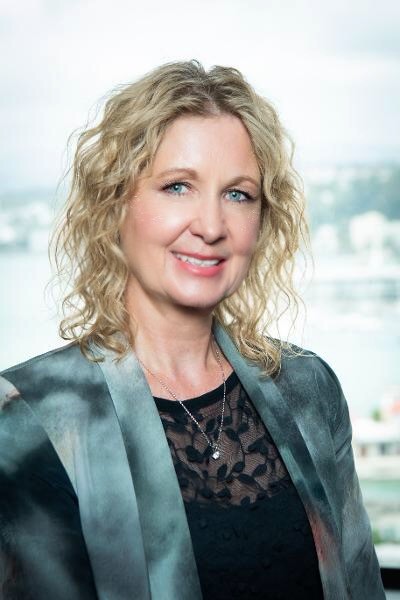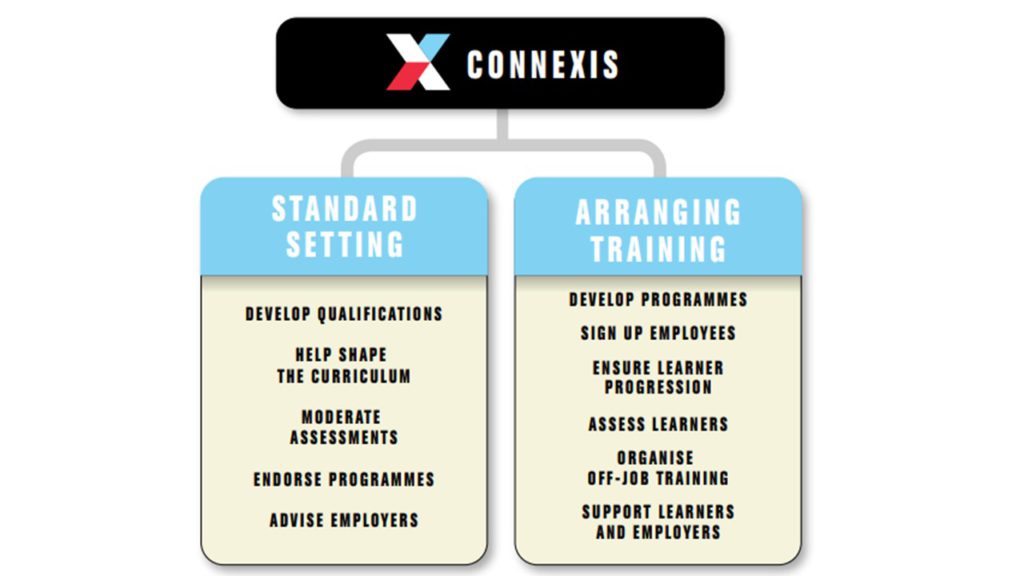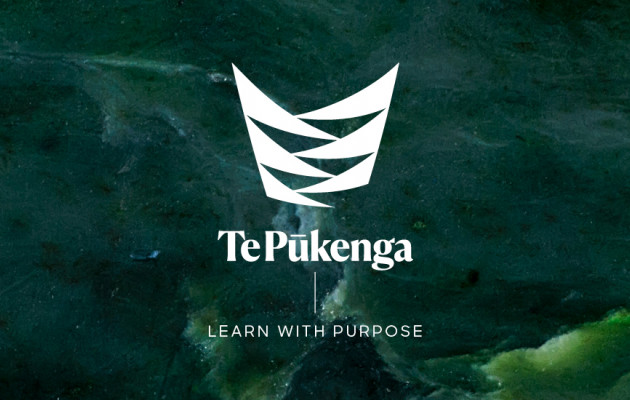
Kia ora koutou,
The Connexis transition plan has been approved by the Tertiary Education Commission (TEC) and we are preparing for the first major shift, which is of our Arranging Training functions into Te Pūkenga from 1 September.
Now we have reached the business-end of the Reform of Vocational Education (RoVE), the mood within our team is one of expectation. We have been preparing for change for a number of years now, with the aim of carrying our staff and stakeholders along on the journey through open and frequent communication.
As we move toward 1 September, our learners, employers, contractors and suppliers can expect to hear directly from us as we coordinate. The shift into Te Pūkenga will not create any immediate change in how we operate, who you work with or your training programme. In the meantime, our Standard Setting functions will continue on in Infrastructure Industry Training Organisation until 4 October, when these functions will be transitioned to Waihanga Ara Rau Construction and Infrastructure Workforce Development Council (WDC).
As other RoVE workstreams continue to progress, including appointing the Workforce Development Council (WDC) governing boards, Regional Skills Leadership Groups (RSLG) co-chairs, and the Construction Centre of Excellence, we can increasingly see the new system take shape, and how it will deliver better access and flexibility to learners, and responsiveness to employers.
Whiria te tāngata – Weave the people together
This whakataukī (Māori proverb) sums up, I believe, what RoVE aims to do. There is real strength in a system that can bring together and respond to diverse perspectives, expertise and experience.
I look forward to participating in its continued rollout and evolution.
Ngā mihi nui,
Kaarin Gaukrodger
Chief Executive
Connexis transition plan approved by Tertiary Education Commission

Connexis has been given the green light to transfer its core functions into other entities as part of the Reform of Vocational Education (RoVE).
There was widespread confidence, from within the organisation, the industry and TEC, that the transition plan puts Infrastructure in the best position to benefit from the reforms.
It provides for a system fed by strong industry input and retains the skills and expertise currently within the system including the specialist training providers, assessors and Connexis team.
We’re focussed on a smooth transition, with minimal disruption to learners and employers, and we hope for maximum benefit through being an early mover, by having more influence from within as the system is established.
On 1 September, Connexis will shift most of its business, excluding the Standard Setting functions, into Te Pūkenga, the new Crown entity charged with transforming the vocational education sector with an increased focus on work-based learning.
As a business division within Te Pūkenga Work Based Learning Subsidiary Limited (WBL), Connexis will continue to Arrange Training, working with industry and learners to develop training programmes that satisfy industry needs, signing employees up to work-based training, and providing support throughout the trainee journey.
Connexis’ remaining functions, of Standard Setting, will transition into Workforce Development Councils (WDCs), primarily the Waihanga Ara Rau Construction and Infrastructure WDC.
Standard Setting means developing qualifications, setting standards, moderating assessments and helping shape the curriculum of vocational education.
WDCs are expected to be operational by 4 October.
Feedback from the Tertiary Education Commission (TEC) RoVE Programme Board and TEC Board was one of confidence that the “first movers” have comprehensive plans and a positive, proactive approach that will smooth the way for others to follow.
Competenz, another Transitional ITO, is expected to transition into the new system a month prior to Connexis on 1 August.
Te Raurau Kaiwhakamahi – Te Pūkenga employer and learner journey consultation July 2021

Te Pūkenga is inviting employers and industry representatives to input into the new system by feeding back on its Operating Model design with respect to the employer and learner journey. Sessions will be held across the country from Tuesday 13 July. There will be two online sessions also.
The sessions will include an update on the mahi that has been undertaken over the last six months, including research to understand the challenges employers and learners have with the vocational education and training system and how they might be addressed.
They will also be an opportunity to explore the eight service concepts that have been developed by the Operating Model co-design team and to provide feedback.Registration is now open for all sessions. Venue locations and further details can be found on the Registration site.
Dates and locations:
13 July – Whangarei – 12 pm – 2 pm
14 July – Auckland – 10 am – 12 pm
15 July – Tauranga – 10 am – 12 pm
19 July – Wellington – 10 am – 12 pm
20 July – Napier – 10 am – 12 pm
21 July – Christchurch – 10 am – 12 pm
22 July – Dunedin – 10 am -12 pm
28 July – Online – 9:30 am – 10:45 am
29 July – Online – 9:30 am – 10:45 am
Workforce Development Council governing board named
Appointments have been made for the governance roles to lead the newly created Workforce Development Councils (WDCs).
Full biographies of the board members are available and confirm there is good representation across the Infrastructure industries, bringing together a diversity of skills and experience. Diversity was something Connexis pushed for in our submission to the Orders in Council for Waihanga Ara Rau Construction and Infrastructure WDC.
Waihanga Ara Rau Construction and Infrastructure WDC Appointments:
| Bill Newson | Elena Trout |
| Brendon Green | John Chapman |
| Chantelle Bailey | Kieren Mallon |
| Daniel Haines | Tracy Davis |
Co-chairs for Regional Skills Leadership Groups appointed
The establishment of permanent Regional Skills Leadership Groups (RSLGs) got a step closer with the announcement of co-chair appointments on 29 June.
RSLGs are focused on planning and addressing labour market issues and future skills need in the regions.
Each RSLG has two co-chairs, one nominated through an Expression of Interest process and the other who was selected in consultation with regional iwi and Māori. Chairs will be appointed for up to three years.
Interim RSLGs were fast-tracked as a result of COVID-19, to support the recovery of labour markets. More announcements about the makeup of the permanent groups are expected soon.
The regions and co-chairs are:
| Tai Tokerau: Toa Faneva and TBC | Wellington: Glenn Barclay and Daphne Luke |
| Tāmaki Makaurau: Robert Reid and Awerangi Tamihere | Marlborough: Jennifer Moxon and Corey Hebberd |
| Waikato: Brendon Green and Keith Ikin | Nelson-Tasman: Ali Boswijk and Justin Carter |
| Bay of Plenty: Dr Chris Tooley and TBC | West Coast: Graeme Neylon and Lisa Tumahai |
| Tairāwhiti: Gavin Murphy and Apryll Parata (current CARE Forum co-chairs) | Canterbury: Karena Brown and Liz Brown |
| Hawke’s Bay: Erin Simpson and Tania Eden | Otago: Laura Black and Karen Coutts |
| Taranaki: Charlotte Littlewood and Dr Will Edwards | Southland Murihiku: Paul Marshall and Tracey Wright-Tawha |
| Manawatū–Whanganui: Katarina Hina and Oriana Paewai |
Te Pūkenga and Westpac NZ sign Australasia’s first ever Social Loan

The $125 million Social Loan is to enable Te Pūkenga to offer better learning and employment opportunities through tertiary education projects and activities.
These include improving access to education, reducing inequality, creating work opportunities, and improving social mobility.
The loan enables Te Pūkenga to advance a fundamental part of its business; to provide equality in education and work outcomes. It supports the goals of Te Pūkenga’s new Social Finance Framework, which is in line with the United Nations Global Goals of Quality Education, Decent Work and Economic Growth, and Reduced inequalities. “By aligning the Social Finance Framework to the United Nations Global Goals, Te Pūkenga is taking the steps required to claim its place as an internationally significant educational institute,” says Te Pūkenga Chief Executive Stephen Town. “The introduction of a new Social Finance Framework is an important step in that direction.”
“The Social Loan will help Te Pūkenga and its subsidiaries improve access to learning, advance equity for Māori and generate employment opportunities,” says Stephen.
Find out more on the Te Pūkenga website.


